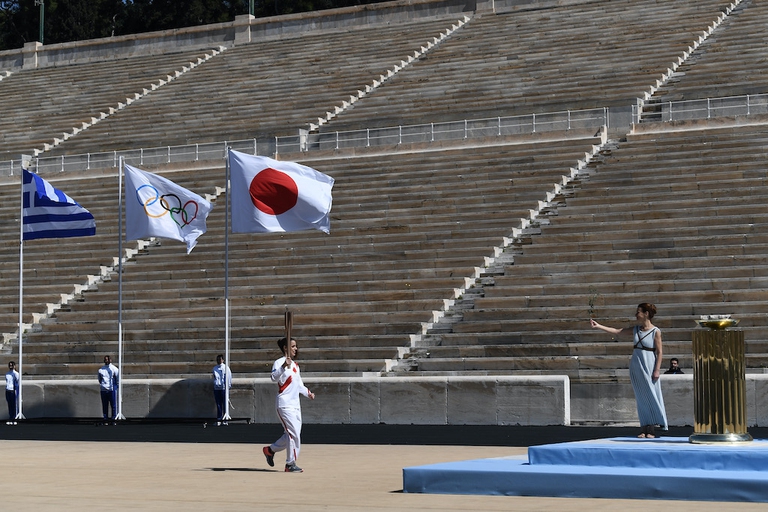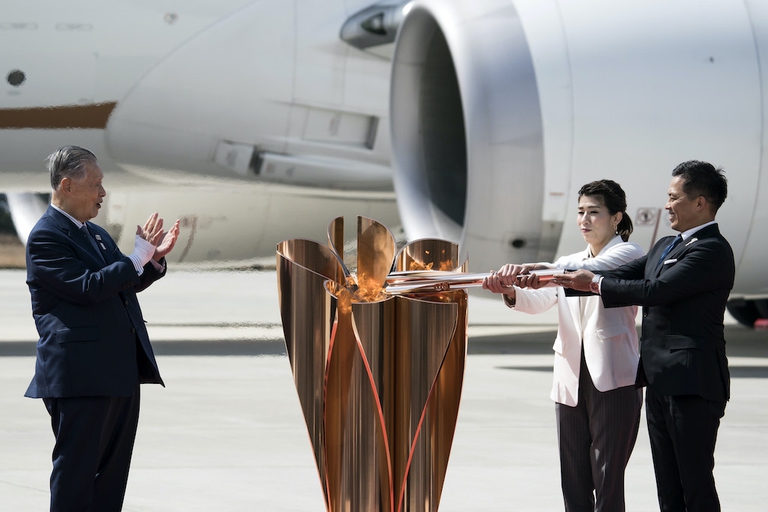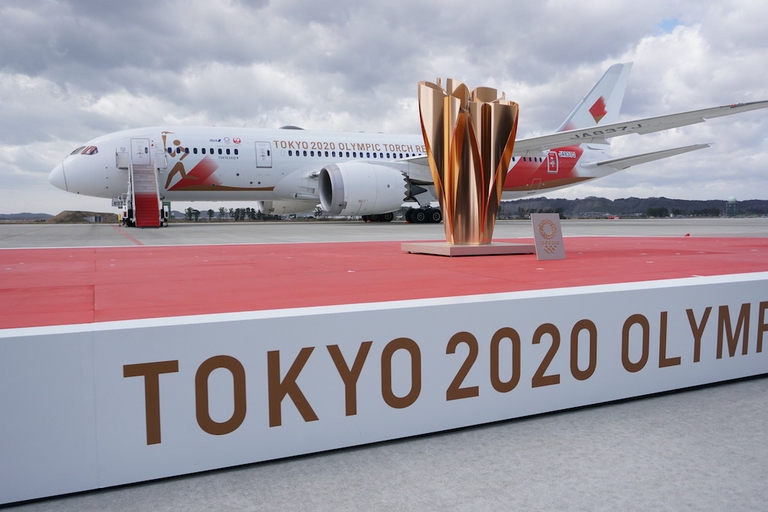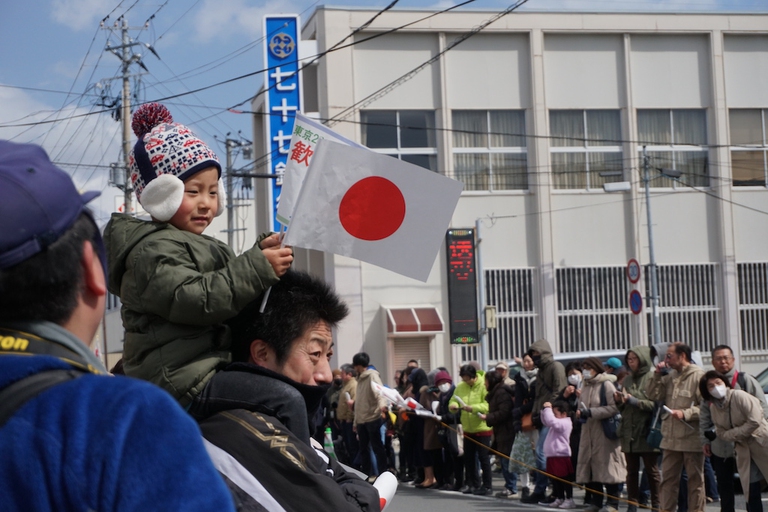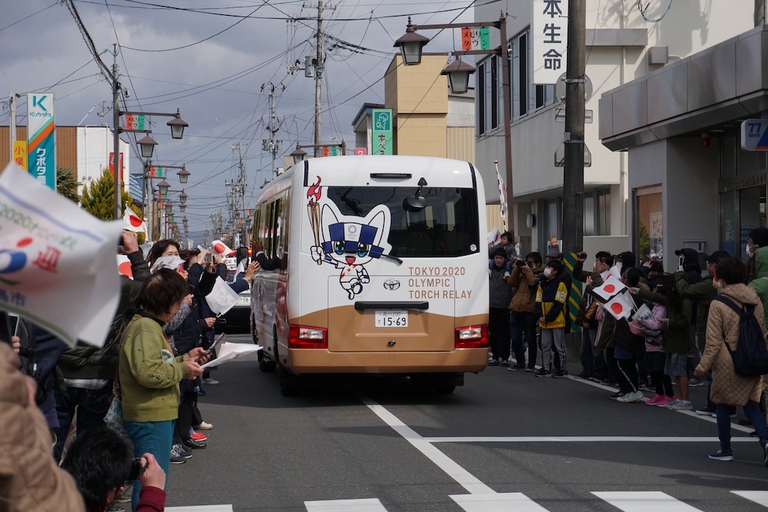
The second wave of the Covid-19 pandemic has shone a painful spotlight on the dire conditions of tea garden workers struggling against poverty in India.
Japan lights the Olympic flame in a key ceremony in the lead-up to Tokyo 2020. Neither it nor the IOC want to give up on the event, though postponement is being considered. Within four weeks the world will know the fate of this year’s Games.
Updated 25 March
Japan refused to give up on the ceremony marking the arrival of the Olympic flame on the 20th of March but the traditional torch relay that should have culminate in this year’s Olympics and Paralympics has been cancelled. In the face of discussions about the feasibility of holding the Games whilst a pandemic is bringing entire nations to their knees, Japanese authorities still believe in the dream of hosting the most important event of the international calendar after years of sweat and preparation. Therefore, Prime Minister Shinzo Abe and the International Olympic Committee (IOC) announced that the Games will be postponed to no later than the summer of next year.
The slogan “Hope lights the way” had been chosen for the torch relay that was meant to kick off on the 26th of March before being cancelled. In the meantime, the flame will remain in Japan “as a beacon of hope to the world during these troubled times and that the Olympic flame could become the light at the end of the tunnel in which the world finds itself at present,” the organisers stated. The flame’s journey actually began before reaching the host country: on the 12th of March, the traditional lighting ceremony was held in the Temple of Hera in Olympia, Greece, where the ancient Olympic Games were disputed. The homeland of the sporting event cancelled its leg of the torch relay as a preventative measure against Covid-19, and decided to host the handover of the flame to representatives of Tokyo 2020 behind closed doors, in an empty Panathenaic Stadium in Athens.
The flame then set off aboard the official Tokyo 2020 plane and reached the Japan Air Self-Defence Force base in Matsushima, in the northern prefecture of Miyagi, the most severely hit by the Tōhoku earthquake and tsunami that caused the Fukushima nuclear disaster and death of over 20,000 people in March 2011. Here it was greeted mainly by members of the press as the presence of local spectators was cancelled. The reduced crowd listened to Tokyo 2020 president as well as former Japanese prime minister Yoshiro Mori‘s speech in which he principally expressed his appreciation for all those involved, adding that, “we originally planned to have children here to welcome the flame but, prioritising their safety, we decided to do without them. We’ll do our utmost in preparing for a safe and secure event.”
Two of the official torch relay ambassadors, wrestler Saori Yoshida and judoka Tadahiro Nomura, both three-times Olympic gold medalists for Japan, then proceeded to light the cauldron at the centre of the stage using the Tokyo 2020 torch, 30 per cent of which is made with aluminium recycled from the shelters used for those displaced by the 2011 disaster. The torch, whose colours are gold and sakura (cherry blossom), is produced from a single sheet of metal using the same technique employed to manufacture the high-speed Shinkansen trains. Its five-point shape, like the number of rings in the Olympic symbol, recalls that of the much-loved flowers – incidentally, the first part of the relay coincides with the festive hanami season, in which the sakura blossom. However, this spring will be different for Japan too as traditional gatherings and celebrations have been banned to prevent the spread of the novel coronavirus.
Notwithstanding such containment measures, the Tokyo 2020 committee reiterated its commitment to host the Olympics and Paralympics. Following a video conference call between G7 leaders on the 19th of March, Japanese Prime Minister Shinzo Abe said he had informed the other heads of state of his government’s willingness to go ahead as planned, receiving their support. But on Monday the 23rd of March he spoke publicly about the inevitability of a postponement for the first time.
On its part, the IOC renewed its backing of Tokyo 2020, stating that “a cancellation would destroy the Olympic dream of 11,000 athletes from 206 national Olympic committees and the IOC refugee team,” in the words of president Thomas Bach. “Such a cancellation would be the least fair solution”. Following pressure from national committees and Australia and Canada‘s withdrawal from the event, on Tuesday 24 March Abe and Bach announced their decision to postpone the Games.
I want to hold the Olympics and Paralympics perfectly, as proof that the human race will conquer the new coronavirus. Shinzo Abe, Japanese Prime Minister
The Olympic flame was greeted in Matsushima on the 20th of March not only by journalists and institutional representatives but also by hundreds of people who gathered outside the military base to see the “Blue Impulse” aerobatic team perform (a spectacle confirmed at the last minute due to the strong wind). Many of the town’s residents as well as those from the surrounding area came together to welcome the Olympic flame carried by torch relay ambassadors Mikio Date and Takeshi Tomizawa of comic duo Sandwichman aboard a special vehicle provided by Toyota, Tokyo 2020 official partner.
After the exhibition of the flame in Miyagi, Iwate and Fukushima prefectures, all heavily impacted by the Tōhoku earthquake and tsunami, it was meant to set off from the latter on the 26th of March for a 121-day long journey in which 10,000 torch bearers were meant to carry it across all 47 of the country’s prefectures. The relay aimed to bring hope as well as a sense of recovery and reconstruction to those who still bear the wounds of the disaster that took place nine years ago. And as demonstrated by the enthusiasm of those who came out onto the streets of Matsushima to greet the flame – waving Japanese and Olympic flags in a jubilant atmosphere – the areas’ desire to overcome a tragic event shines as brightly as the flame itself. It’s yet to be seen whether the rest of the world will feel the same way when Tokyo 2020 should kick off at a future (unknown) date.
Siamo anche su WhatsApp. Segui il canale ufficiale LifeGate per restare aggiornata, aggiornato sulle ultime notizie e sulle nostre attività.
![]()
Quest'opera è distribuita con Licenza Creative Commons Attribuzione - Non commerciale - Non opere derivate 4.0 Internazionale.
The second wave of the Covid-19 pandemic has shone a painful spotlight on the dire conditions of tea garden workers struggling against poverty in India.
In response to a lack of public services, organisations and individuals are helping citizens weather the devastating Covid-19 crisis in India.
A study indicates that the zoonotic origins of coronavirus may have been favoured by global warming’s impact on the conditions for bat habitats.
While Africa’s Covid-19 response has been praised by some, the pandemic has triggered the continent’s first recession in 25 years.
In Coronation, a documentary filmed by the people of Wuhan, the dissident Chinese artist documents the government’s rigid control during lockdown.
David Nabarro of the WHO analyses worldwide actions against the pandemic. Lockdowns alone aren’t a sustainable response to stopping Covid-19.
Kenya may fail to meet its target of ending female genital mutilation by 2022 as Covid-19 school closures have seen more girls undergo the illegal practice.
Helsinki Airport has begun implementing a Covid-19 test which is both noninvasive and simple. The exceptional nurses involved are dogs.
The drop in air pollution during worldwide lockdowns helped prevent thousands of premature deaths. But the situation is returning to pre-crisis levels.
